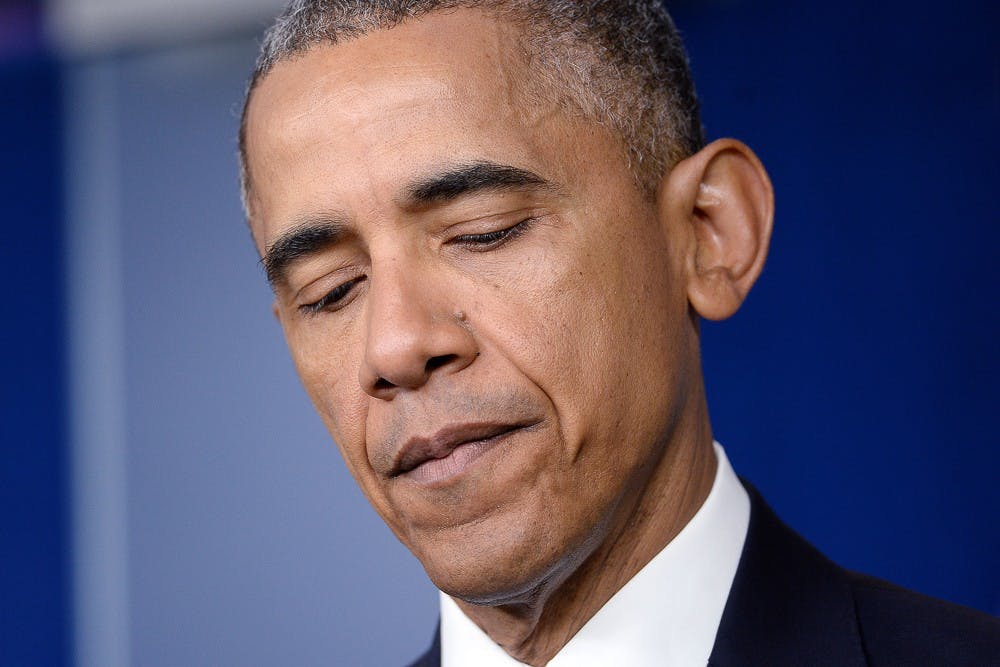Unfortunately, Obamacare was not thought out from the start, and now many Americans will struggle with the repercussions of a poorly implemented plan. The original theory was a sweet idea, but the tough reality is higher prices for customers and lower income for companies, all in the name of sustaining a utopia of equality for those who do not contribute equally.
In 2010, President Barack Obama signed an act in attempt to reform America's health care industry. The act is known as the Patient Protection and Affordable Care Act; the name describes it entirely, Obama's goal was for every American to have access to equal and affordable health care.
The goal was to prevent private health insurers from competing and raising prices for customers, as well as to make insurers working with Obamacare agree to cover high risk patients.
Although there was a lot of backlash from Americans who were happy with their health care plans and did not find it fair to have to cover the medical coverage of citizens who did not contribute as much into taxes as they did, the Affordable Care Act was successfully upheld by the Supreme Court in June 2012.
Originally, United Health Group suggested reducing their involvement with Obamacare by decreasing its marketing of the healthcare’s exchange plans. The exchange plan is just what it sounds like: a trade. Americans could get Obamacare by exchanging their private health care provider to instead have coverage from their state's insurance exchange, otherwise known as marketplace.
However, now there is discussion regarding the company possibly withdrawing from the Obamacare program entirely; the company recently announced that it is considering backing out of their cooperation with Obamacare by 2017. This would mean that the program would loose the security of being supported by a massive company.
If the company decides to take this route, it will leave half a million people out in the dust to search for coverage. Many smaller health insurers would be left to pick up the pieces, a task that would be a miracle to pull off.
Stephen Hemsley, the CEO of United Health Group told the Los Angeles Times that, “market data has signaled higher risks… while our own claims experience has deteriorated."
The company is America’s largest health insurer and has faced “major losses” while doing business with Obamacare.
“We cannot sustain these losses... We can’t really subsidize a marketplace that doesn’t appear at the moment to be sustaining itself,” Hemsley said in The Week.
United Health Group is not alone, a dozen cooperative insurers set up and funded. This includes more than half of the original 23 Obamacare co-ops have failed. Arizona, Utah, South Carolina, Colorado, Iowa, Nebraska, Louisiana, New York, Nevada, Tennessee, Oregon, Kentucky and Michigan are among the unsuccessful attempts.
The reason that so many of these Obamacare partners are struggling is because the number of ill customers are outweighing the number of healthy customers. As a result, the prices increase and fewer healthy people are compelled to sign up, with that said, there will be a 20 percent price increase for 2016.
The idea of Obamacare was good in theory, but it seems obvious that we should want everyone to have a fair shot at a healthy life. Now, with the unraveling of this unattainable idea, some Americans and companies will be worse off than they were before.
Related Links:
Obamacare is working, give Obama some credit
Reach the columnist at Alexis.Berdine@asu.edu or follow @AlexisBerdine on Twitter
Editor’s note: The opinions presented in this column are the author’s and do not imply any endorsement from The State Press or its editors.
Want to join the conversation? Send an email to opiniondesk.statepress@gmail.com. Keep letters under 300 words and be sure to include your university affiliation. Anonymity will not be granted.
Like The State Press on Facebook and follow @statepress on Twitter




